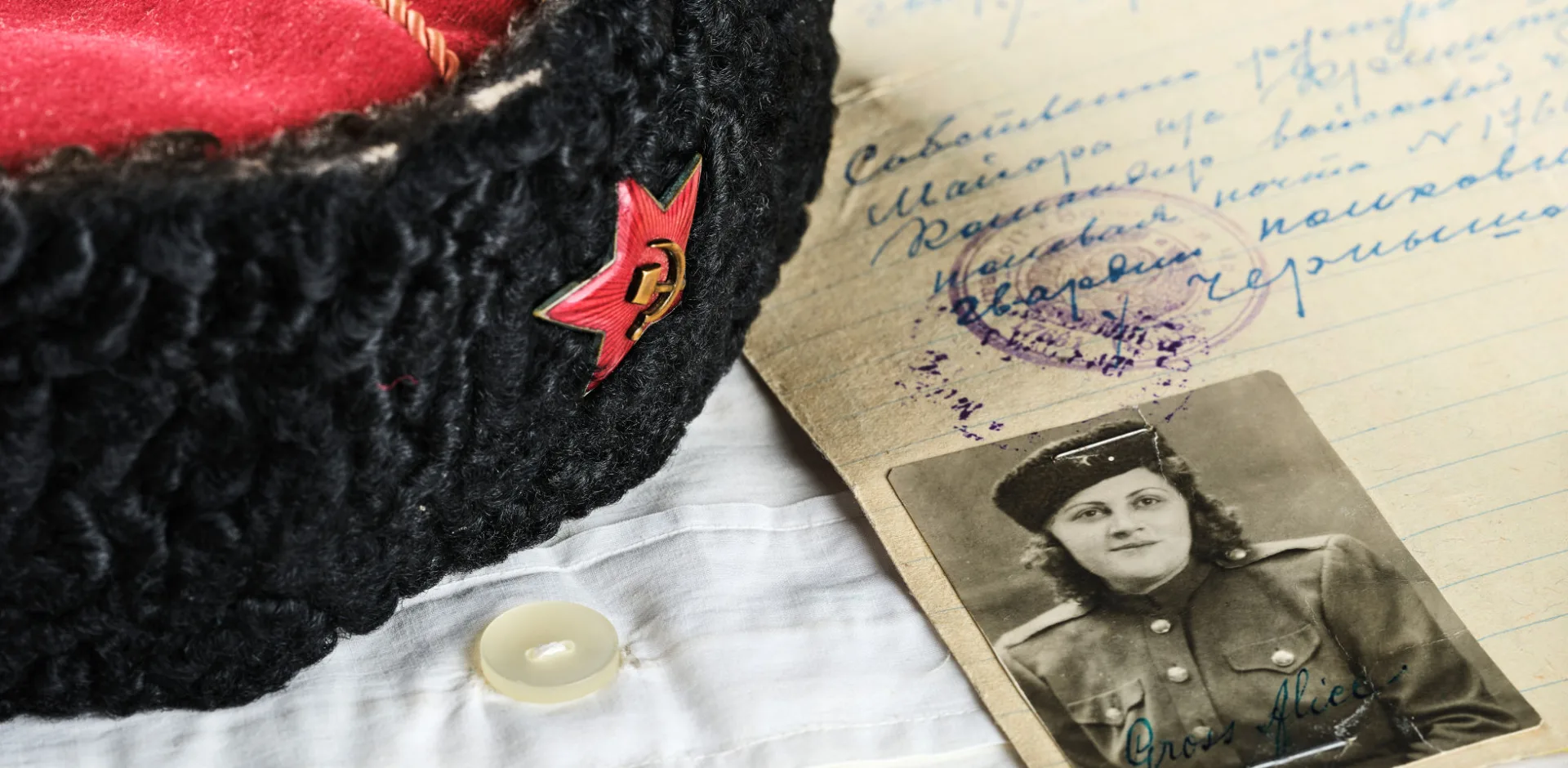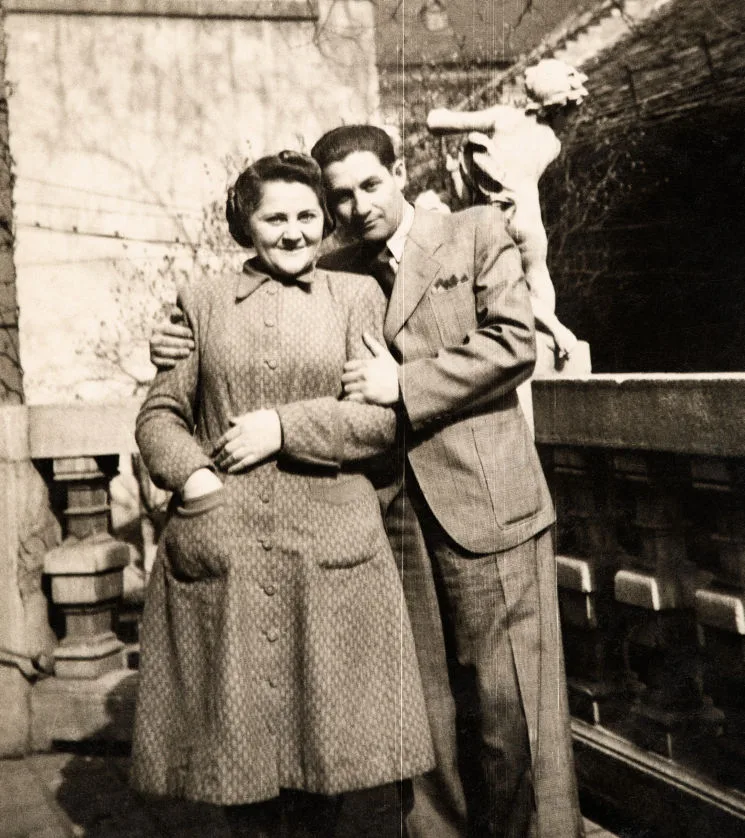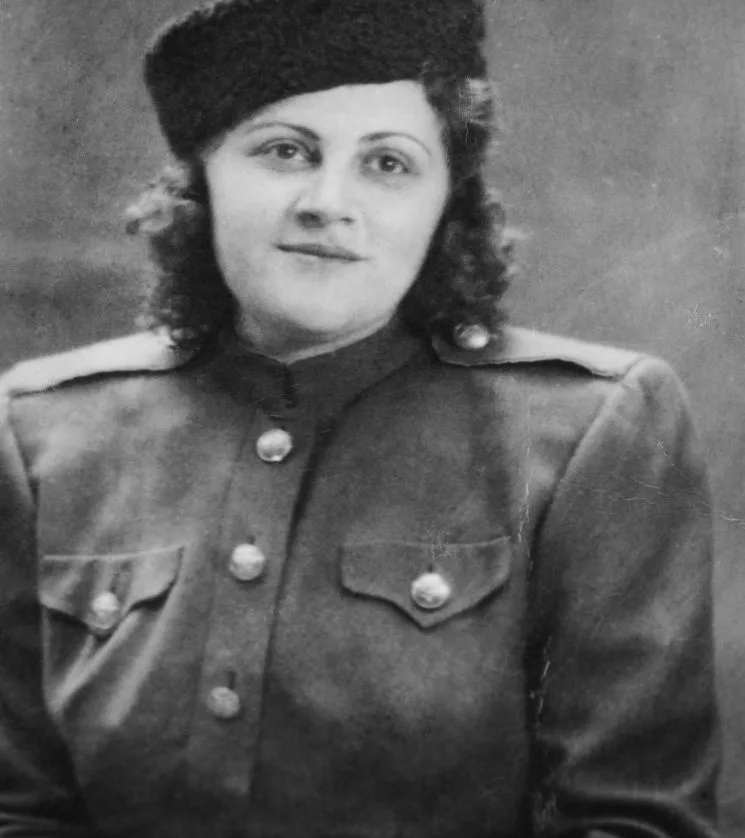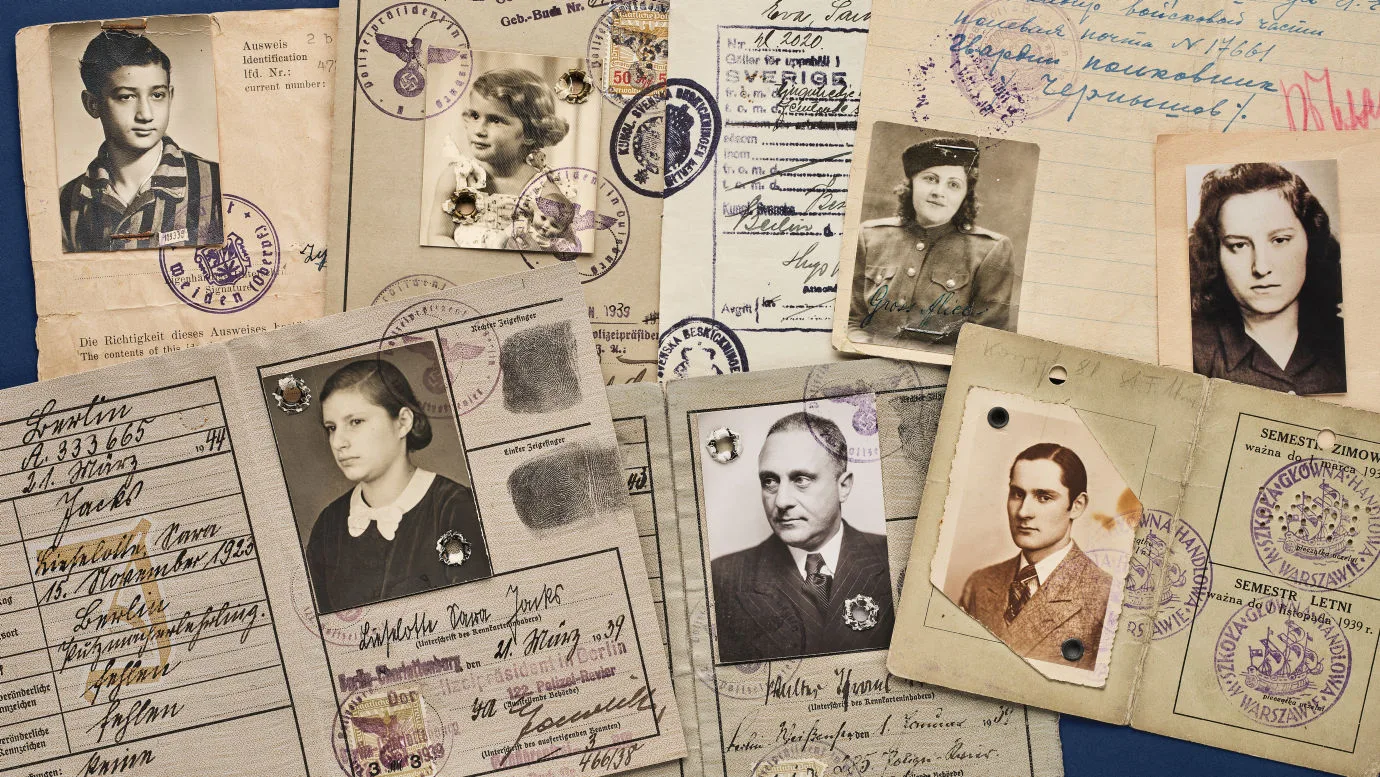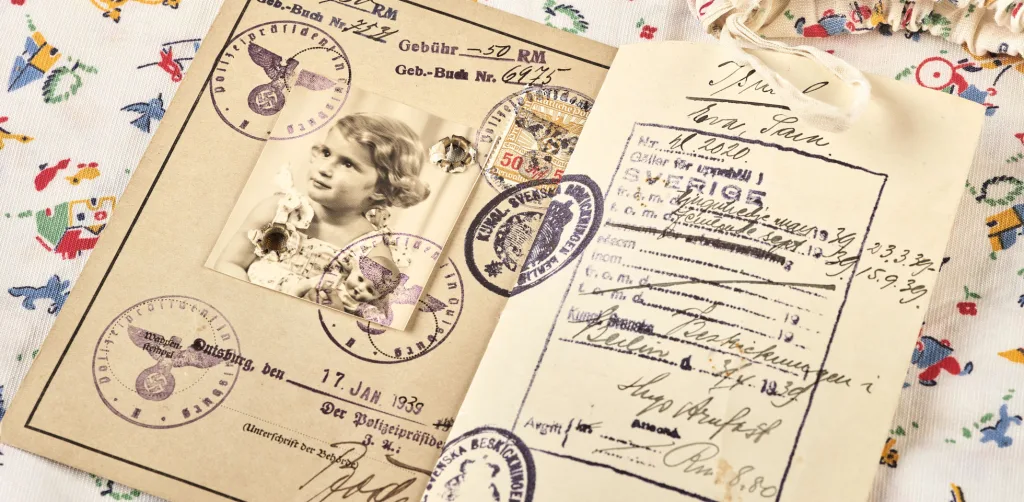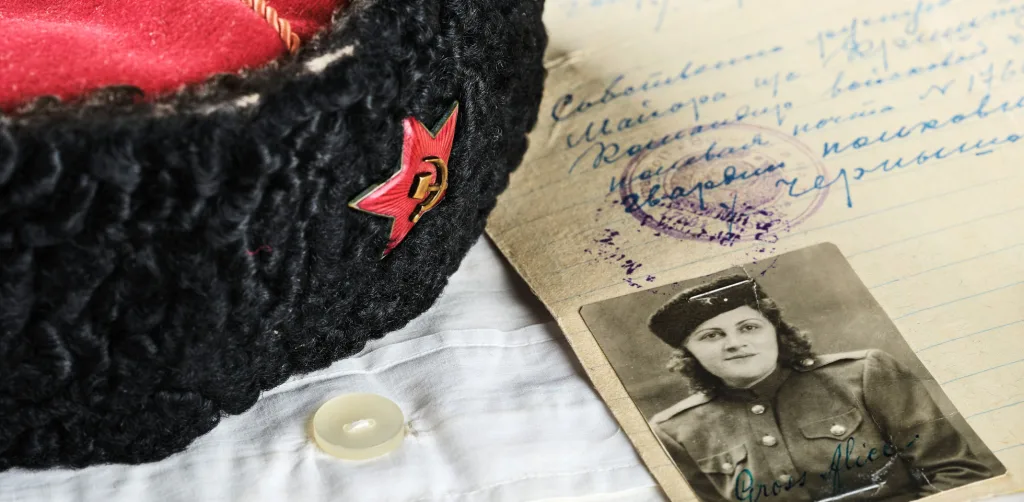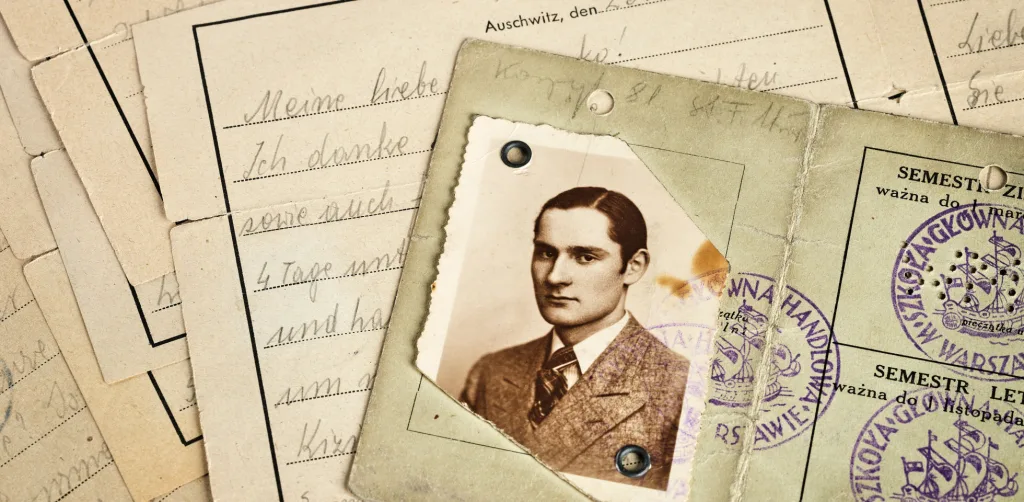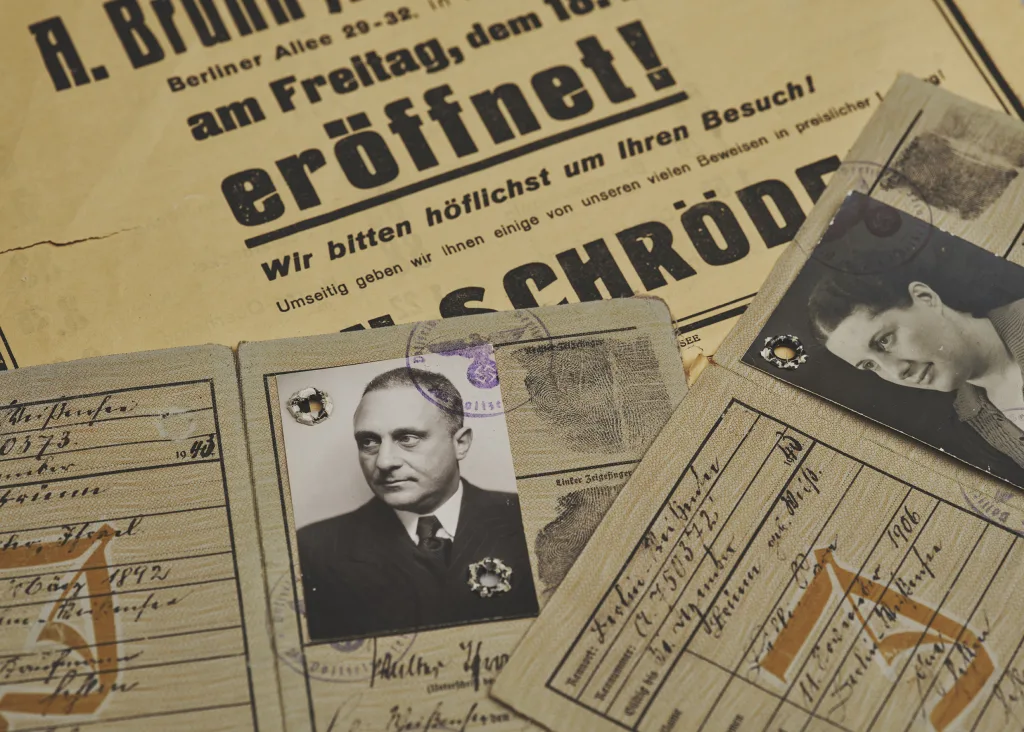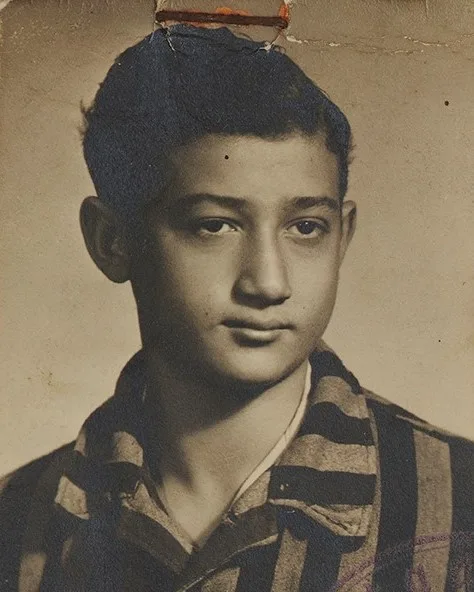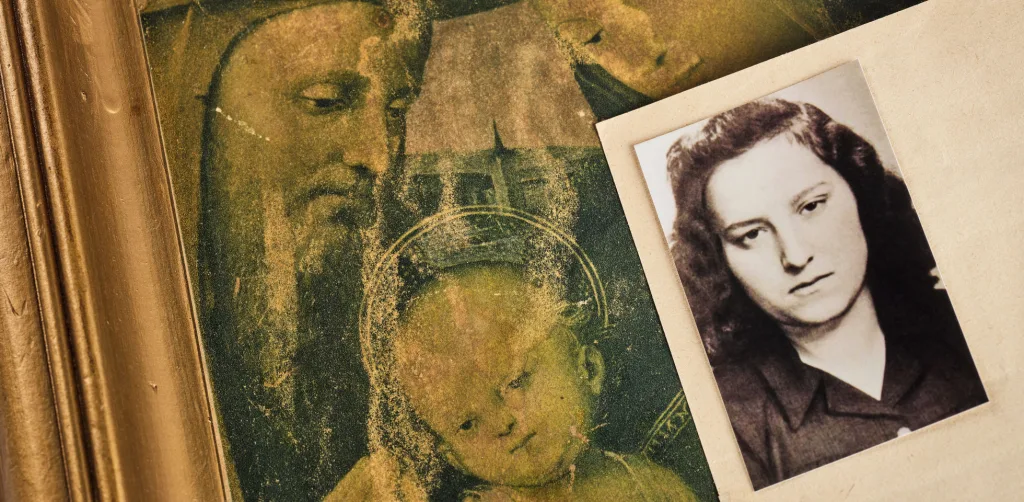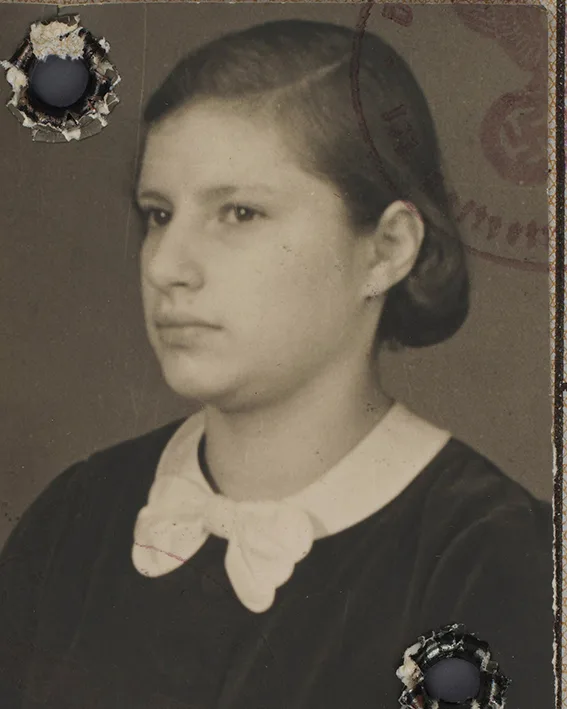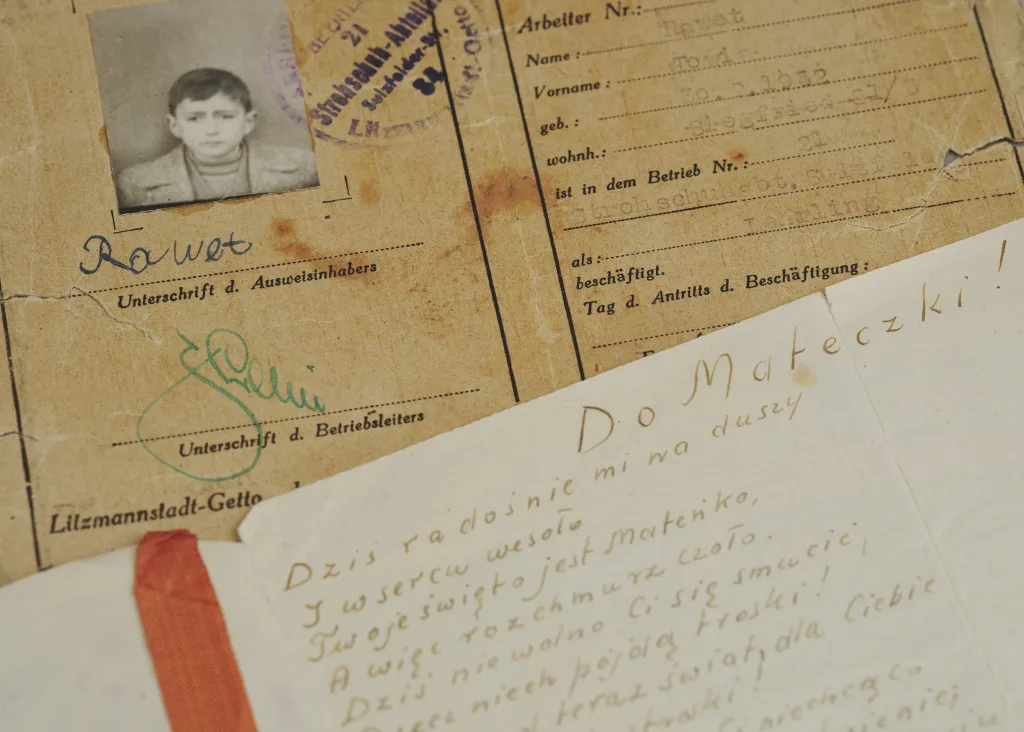In March 1944, the armies of Nazi Germany occupied Hungary. 30-Year-old Alice Grosz lived in the capital, Budapest and ran a dairy shop. Alice was unmarried and lived alone. There was a man in her life though: Sándor. But he lived with his wife and three daughters in the city of Jászberény east of Budapest.
Alice avoided the deportation of Budapest Jews in Autumn 1944. She disguised herself as a catholic war widow and obtained duplicate identity papers from one of her employees. The man she met in the street exchanged a few words with her and wished her good luck. She could keep her false identity.
In November 1944, the Soviet army reached Budapest. As well as Hungarian and Yiddish, Alice spoke both Russian and German. She was engaged by the Soviet army as an interpreter and worked for them until the end of the war.
One day, Sándor came back to Budapest and to Alice. His brother, who had also survived, was with him. But Sándor's wife and three daughters were murdered in the gas chambers of Auschwitz-Birkenau.
After the German occupation of Hungary, Sándor had been in different labour camps. When the Soviet troops were approaching, he was forced out on a so-called death march. Sándor was liberated by the American army in May 1945.
After Sándor came to Budapest, he and Alice were reunited and they were married the following year. In 1948, they moved to Sándor’s home city of Jászberény. The couple opened a clothing shop and their son, Tomas was born in 1954. Before the war, there were about 600 Jews in Jászberény. Now there were only about a hundred of them left.
One autumn day in 1956, Alice saw the words “Jew, we won’t send you to Auschwitz” written on a wall in Jaszberény. She understood the antisemitic graffiti to mean “we will murder you right here.” Alice then made her mind up. She and her small family could not stay in Hungary. In July 1957, Alice and Sándor got off the ferry in Trelleborg together with little Tomas, who was then almost three years old.
Alice's story
Tomas Kertész has shared his parents' story with the Swedish Holocaust Museum and has loaned objects and photographs from his private collection.
Sources
- Tomas Kertész has shared his parents' story with the Swedish Holocaust Museum and has loaned objects and photographs from his private collection.
